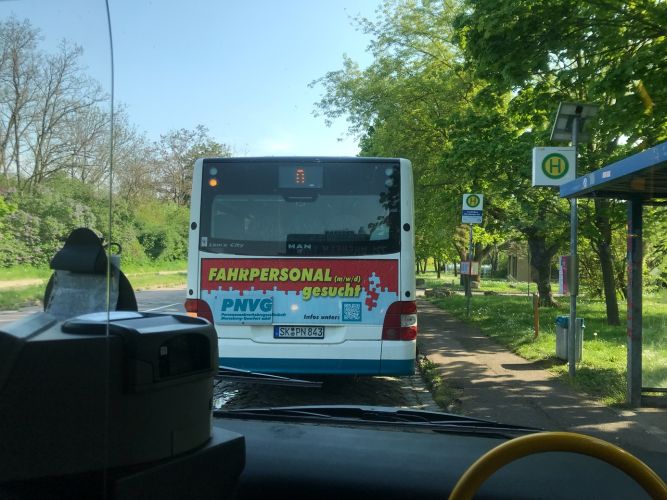
The way people are mobile is constantly changing due to technical developments, economic rationalities and socio-political ideas. Now however, the political project of the mobility transition aims to decarbonize the entire transport system in Germany and Europe within a few decades. One component of this political program is the expansion and upgrading of local public transport in order to shift more traffic from cars to various means of public transport. To this end, the federal government invests with the help of various funding programs and measures and delegates responsibilities to the communal level.
The aim of my research project is to trace how this specific political project is implemented and received in the peri-urban region of the Saalekreis.
Using ethnographic methods and the methodological approach of ‘studying through’ (Shore/Wright 2011), the study follows the everyday struggles, relationships, and perspectives of professional actors involved in the implementation, management, planning, provision, and decision-making about public transport, as well as non-professional actors and citizens who, influence local transport policy in different ways.
In doing so, I ask myself with which strategies and concepts the actors pursue their goals and what influences, limits or extends their actions. Which groups become subjects of policy, and what does the stuggle for consent look like? A particular focus will lie on the symbolic aspects, on the narratives, memories and attributions of meaning that are mobilized in connection with the struggle for hegemony. How are these localized or de-localised by bringing supra-local meanings to bear?
The research project is located in the systematic field of political anthropology as well as environmental and sustainability anthropology and in interdisciplinary mobility studies.
It promises new insights into local dynamics of ‘green transformations’ (Scoones 2016) and, concomitantly, (new) forms of exercising power in state and non-state fields that have an impact beyond local contexts and concerns and raise fundamental questions about power continuities and disruptions in the transition to post-fossil societies.
